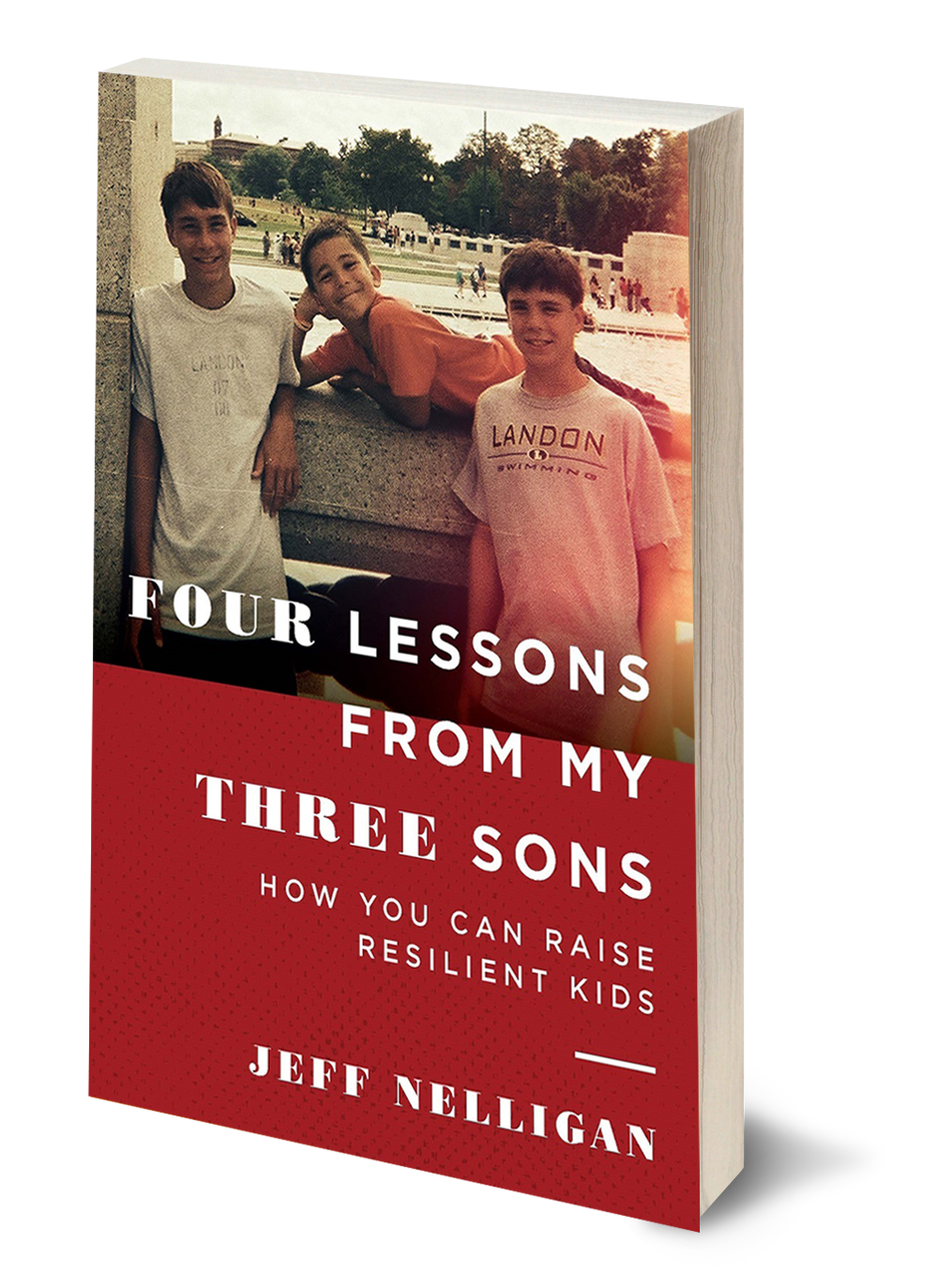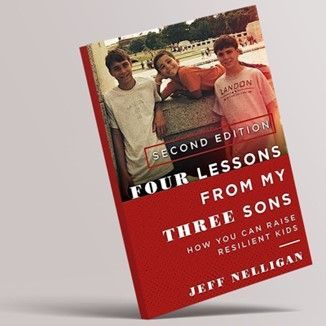5 Tips for Millennials Who Want to Raise Engaged and Resilient Kids
Jeff Nelligan • January 16, 2020
Up front: It’s become a lazy and inaccurate trope to malign Millennials. Because the fact is, they are one of the most powerful forces in American society today. At 79 million, they are the largest generational cohort in America. They’re also the most educated age group; 39 percent have at least a bachelor’s degree and earn more, with a median adjusted household income of $85,800, than young adult households did at nearly any time in the last half century.
Most important, this now ascendant generation is raising families. Today, there are more than 38 million babies born of Millennial parents.
And with that Millennials are heading up families that comprise nearly one-third of the U.S. population, here are some age-old tips that can help them raise engaged and resilient kids. (Full disclosure: I’m the father of two Millennials who have made their way through the U.S. Naval Academy and Williams College and beyond).
1. Character always counts.
Every adult knows this: Upright conduct requires no talent and no skill whatsoever. There’s no intellect necessary in looking into someone’s eye when you speak with them. There’s no skill required in shaking hands with an adult and saying Mr., Mrs., or Ms. It’s not difficult to wear modest, presentable clothing, to comb your hair or tuck in your shirt, and refrain from obscenities. Hey, how hard is the simple act of being a pleasant to an individual? These are the easiest tasks there are – and parents should find it easy to insist on this behavior.
2. The dangers of the glowing rectangle.
Millennials span the lifespan of the digital age, from the formation of the now-behemoth Amazon in 1998 to the first IPhone in 2009. They know how ubiquitous – and harmful - screen saturation can become. Whether it is violent video games, frenetic social media, or zombie-like streaming, the kids of Millennials are in danger of being hooked. The wise parent limits screen time and enhances Dad and Mom time.
3. The value of public judging.
There is nothing better for the self-worth of a kid than being on a stage, a field, or in the spotlight. That’s because when a kid is in the arena, they can’t run - and they must rely on personality, talent, and confidence. I used to tell my boys every time they suited up for a game: “Guys, this is as good as it gets. Just think - half the people in the stands today will be screaming at you to fail. Show them up and prove them wrong.” A kid who can perform in the moment when the heat is on becomes a stronger individual for life.
4. Have your kid take charge.
Explain to your kid that a safe, objective point of view in any situation is to assume that everyone around them has little or no idea of what they are doing. Clarify that it’s not wise to make assumptions about the actions or understanding of others. Kids need to be taught these reflexes: If a situation is getting sketchy, you are the first kid to pull out of it. If you are driving, don’t assume the person getting ready to pull out sees you or is even paying attention. Never go with, "I think they understood what I was saying" - ensure sure they understand. Initiative is vital. Telling your kid to take charge of his or her environment means other won’t do it for them.
5. Adversity is priceless.
No kid – and no adult – gets a free pass in life. Even a courteous, confident kid is going to have ordeals and disasters. My sons suffered through all of the trials that your kids will encounter: Wrestling with friendships and peer pressure; struggles with academics; getting beaten like a drum by opponents in games; and, personal disappointments they never shared with me, but which I knew existed. Failure is bound to occur at some point and occur again. The key is to absorb the distress and instinctively find a way forward.
Hence, persuade your kid that the best way of avoiding sagas, or at least prevent them from spinning out of control, is to approach daily life with preparation and poise. Strive to have them react to any setback, large or small, with as much calm as they can muster and keep the big hit in perspective. Most important, teach them to them to move out forthrightly: assess clearly the problem, adapt to the changed circumstances, and then drive forward. Adversity teaches a kid more about life than success ever will.
Parenting is timeless and requires strength and discipline. These five tips can help Millennials raise the newest generations of Americans, kids who will learn to strive and endure and succeed.
ABOUT THE BOOK
Every Dad in America wants to raise a resilient kid.
Four Lessons from My Three Sons charts the course.
Written by a good-natured but unyielding father, this slim volume describes how his off-beat and yet powerful forms of encouragement helped his sons obtain the assurance, strength and integrity needed to achieve personal success and satisfaction. This book isn't 300 pages of pop child psychology or a fatherhood "journey" filled with jargon and equivocation. It's tough and hard and fast. It’s about how three boys made their way to the U.S. Naval Academy, Williams, and West Point – and beyond.











